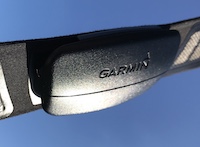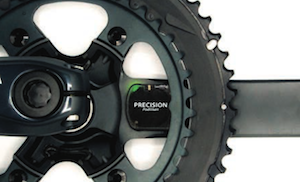Power up with Wattgain
WattGain is now available for you to try out!
Get started
Please read our Privacy Policy.
Heart rate vs Power: which is best to monitor?
Power meters have long been discussed as the professional's choice for delivering a quality ride, but are they really worth it compared to the cheaper and more traditional heart-rate monitor? After all, a heart monitor is measuring the key metric of the human engine, so that could be sufficient to determine how hard you're working.

The heart rate monitor (HRM for short) is basically just a strap around your chest and is therefore easy to get started with, and will naturally show you how hard your cardio-vascular system is working. This is certainly a good thing to know; you can rapidly learn which heart rate zone you can sustain for a desired duration. The problem is that, for most people, the heart isn't the limiting factor in determining how close you are to exhaustion. Your muscles are the key components of the entire human engine that are being fatigued and damaged, and when you've ridden too hard it's your leg muscles that will be unable to function properly - most likely for a day or more. Your heart rate is influenced by the real-time effort of your legs, but will also be pumping easier or harder depending on many environmental conditions. Most importantly, heart rate is affected by illness or anxiety, and in such a state you will usually have an artificially elevated heart rate. So, in summary:
- During cycling the legs are the key components that will become fatigued
- Your heart rate will at best be an educated guess at tracking this fatigue
Why choose?
At the end of the day, leg power and heart rate are different things. Heart rate tells you how hard your heart is working (and how effectively you're delivering oxygen and other fuel to the muscles). Power tells you how hard you're turning the pedals. So power data won't tell you if your cardio-vascular system is under stress, and your heart rate won't tell you how hard you're pedalling. So in an ideal world you should monitor both leg power and heart rate, and this way you'll be able to keep your efforts in check to achieve that target distance or time.
Power if you can get it

Despite much cheaper versions coming to the market, power meters are still on the expensive side, and if you can't afford one then a heart monitor is the next best thing - and with some experience you can learn to adjust your target heart rate depending on external factors.
To see which power meter might be right for you (or at least affordable), have a look at our Power Meters Compared Guide.

